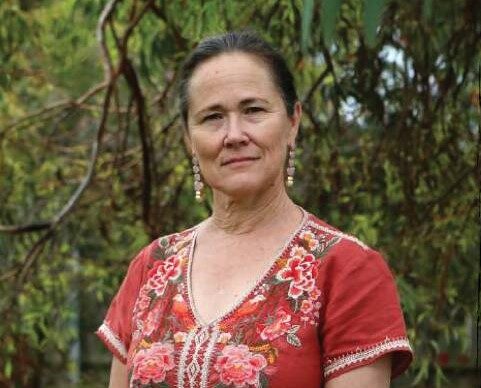Illawarra Mercury – Grace Crivellaro
The bill, if passed, will criminalise coercive control towards a current or former intimate partner, and carries a maximum sentence of seven years.
Attorney-General Mark Speakman announced on Wednesday the “landmark reforms” were introduced into parliament, and were backed by $5.6 million in funding to go towards police training and awareness campaigns.
“The bill we have introduced today is our best recommendation of the way forward, informed by many years of extensive consultation, research and analysis,” Mr Speakman said.
“Coercive control is difficult to identify, difficult to legislate and difficult to prosecute. But these challenges are no excuse for not acting – this is a matter of life and death.”
In his second reading speech, Mr Speakman said the reforms were evidence-based, with the draft bill having received more than 200 submissions in response.
“The extensive consultation process has crystallised the key drafting choices and the views of stakeholders, as divergent as they are, with respect to those choice,” he said.
Key elements ‘missing’
However, psychiatrist Dr Karen Williams, who is the leader behind Thirroul’s women’s-only hospital for victim-survivors of trauma and domestic violence, said the bill falls short.
The bill contains five components that need to be proven in court, including that an adult has repeatedly engaged in “abuse behaviour” involving violence, threats or intimidation, which is intended to control the other person.
A defence will be available where the conduct was “reasonable in all the circumstances”.
“Coercive control is endemic, I strongly want to see it criminalised,” Dr Williams said. “Except we’ve got a real big problem with this current legislation that the person has to prove intent.”
The reforms outline that victim-survivor’s need not have actually suffered the fear or serious impact for the crime to apply, and that a reasonable person would find the conduct likely to cause the person fear of violence.
“This drafting keeps the focus on the perpetrator’s actions and accountability for their behaviour, rather than focusing on the victim having to prove the effects on them,” Mr Speakman said.
One part of the offence is that a reasonable person would consider the conduct would be likely to cause the other person to fear violence will be used against them, or would seriously impact their capacity to engage in day-to-day activities.
However, Dr Williams believes it would still be difficult for a victim-survivor to prove in court they has been subjected to coercive control, due to the nature of the abuse.
“It is completely implausible and won’t happen because the whole idea of coercive control is a person can abuse somebody and hide behind benevolent behaviour. It’s framed as doing something good for the person,” she said.
“Even financial abuse, where they take entire control of the finances and bills, they will start with saying they’ve done a favour for the person … how is someone supposed to prove that this has been done to control them?”
Dr Williams said an important change would be allowing psychologists and psychiatrists who are aware of a victim-survivor’s history to tender evidence of coercive control, rather than an independent court-appointed lawyer.
“The prosecuting team should be able to tender evidence that a woman had lots of friends, a stable job … before becoming isolated and sustaining PTSD from her partner’s coercive control. It should not be up to her to show this evidence,” Dr Williams said.
“I’ve had this happen where a court-appointment psychologist has misdiagnosed a client as having a personality disorder, and disregarded my report when I know the woman’s history and documented notes showing the pattern of coercive control.”
Mr Speakman acknowledged Shellharbour MP Anna Watson, who has fought for coercive control to be recognised in legislation since 2020, in his second reading speech.
However, she also slammed the bill as it stands, and said she intended to put forward recommendations of amendments.
“(The bill is) a Band-Aid for a bullet wound when it comes to women being murdered at the hands of their partners,” Ms Watson said.
“If you do a comparison of what I brought to parliament in a private bill, it had real protections, re-establishments of women’s centres, and a proper description of what coercive control is.”
Ms Watson added she was “disappointed” there was no additional funding announced for women’s health centres or the Illawarra’s trauma recovery centre.
Sally Stevenson, the general manager of the Illawarra Women’s Health Centre, agreed.
“The ($5.6 million in) funding is woefully inadequate and the legislation has significant holes in it,” she said.
Shellharbour MP Anna Watson, researcher Dr Patricia Cullen, Illawarra Women’s Health Centre general manager Sally Stevenson and domestic violence victim-survivor Melissa Edwards last year when it was announced the Illawarra Women’s Trauma Recovery Centre was allocated $25 million in funding. Picture by Sylvia Liber
What is coercive control
Coercive control is a pattern of behaviour that isolates, humiliates and degrades victims.
It is just as serious as other forms of domestic abuse, and is what keeps a person trapped in a relationship, Dr Williams said.
The NSW Coroner’s domestic violence death review team noted in a report last year that a number of its cases were not preceded by an evident history of physical violence.
Instead, they used “extreme manipulation and controlling behaviours” to avoid police detection.
This includes things like isolating them from friends and family, monitoring communications, serious threats, controlling finances or covertly tracking them using spyware or other settings on their mobile phone.
The people they inflicted this control on often did not know they were being abused and thought what they were experiencing was “part of ordinary relationship dynamics”, the report noted.
Funding
Treasurer Matt Kean said on Wednesday the law reforms are backed by $5.6 million in initial funding.
This includes $700,000 announced in the 2022-23 NSW Budget to “support the NSW Government’s commitment to outlaw coercive control in intimate partner settings”.
“We know that this law is only as strong as its implementation. That’s why today we are announcing a further $4.9 million to support coercive control training for police, funding for multiple awareness campaigns and educational resources,” Mr Kean said.
If passed, it will be up to 19 months before the laws are enacted, to allow time for training, resourcing, education and community awareness raising, a statement from the NSW Government said.
The bill also provides for a statutory review of the offence after three years of operation.
The review will include consideration of whether the mental element should be extended to recklessness, the scope of relationships captured should be expanded, impacts on Aboriginal people, misidentification of victim-survivors, and whether the penalty should be increased.


